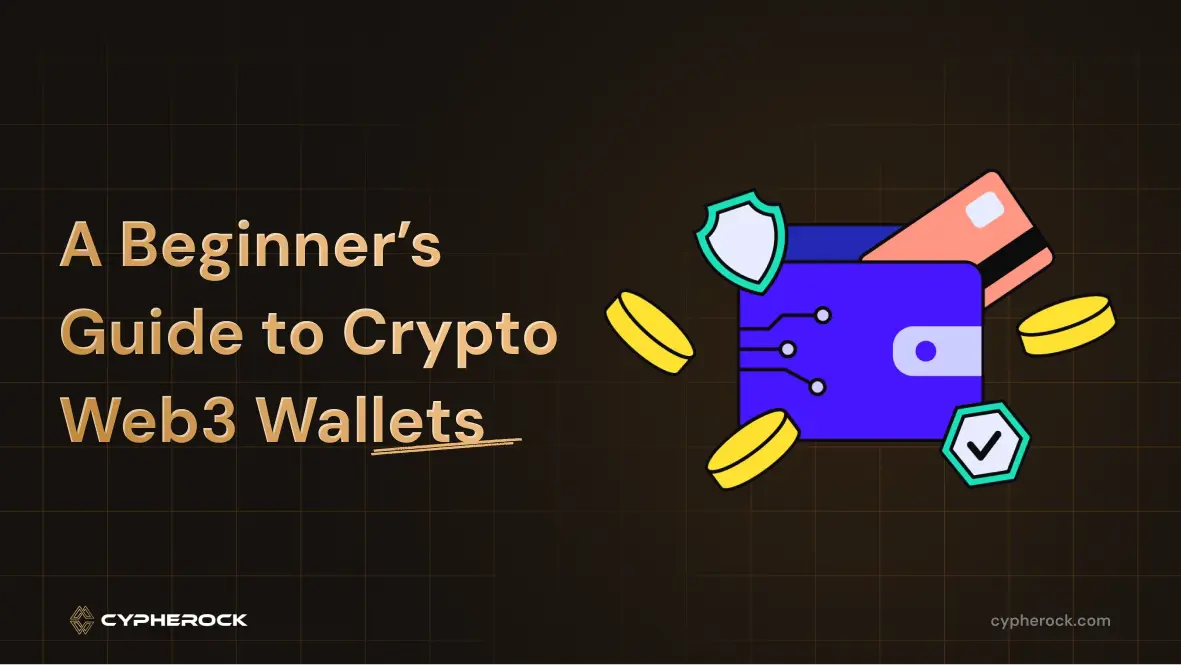

Imagine having full control over your digital money, NFTs, and online identities, without relying on banks or centralized platforms. That’s exactly what a Web3 wallet lets you do. These digital wallets are your gateway to the decentralized internet, enabling you to safely send, receive, and store cryptocurrencies while interacting directly with blockchain networks and decentralized apps (dApps).
Understanding Web3 wallets is more than just tech curiosity; it’s essential for anyone stepping into the world of crypto, decentralized finance (DeFi), or blockchain gaming. They don’t just hold your assets; they protect your private keys, manage your digital identity, and unlock access to countless blockchain-powered opportunities.
Whether you’re buying your first crypto token, exploring NFTs, or diving into DeFi, having a secure, easy-to-use wallet is critical. In this article, we’ll dive into what Web3 wallets are, how they work, and why they’re so important for your crypto journey.
Web3 refers to the next evolution of the internet, where users control their data and digital assets rather than large corporations. It is built on decentralized technologies like blockchain, which is the foundation of cryptocurrencies, NFTs, and smart contracts.
Web3 wallets are tools that allow you to interact with these decentralized networks. Through Web3 wallets, you can access various blockchain-based applications, securely manage your digital assets, and ensure the privacy of your transactions.
A Web3 wallet primarily performs two key functions:
Additionally, Web3 wallets help you interact with smart contracts, decentralized exchanges (DEXs), and other blockchain-based applications.
Traditional wallets, such as PayPal or bank accounts, are centralized, meaning a third-party service controls your funds and records. In contrast, Web3 wallets are decentralized, giving you full control over your digital assets. No intermediary is involved in transactions, meaning you can send and receive funds directly between users, without needing approval from a central authority.
Another key difference is that Web3 wallets store your private keys on your device or offline, ensuring security. Traditional wallets, on the other hand, typically don't offer you this level of control or protection.
There are three primary types of Web3 wallets: Non-Custodial, Custodial, and Smart Contract wallets. Each has its own set of advantages and trade-offs.
Non-custodial wallets give you complete control over your private keys and assets. This means you are your own bank and don’t rely on third parties to manage your funds.
Custodial wallets are managed by third-party services such as cryptocurrency exchanges (e.g., Coinbase, Binance). These services hold your private keys and allow you to access your funds through their platform.
Smart contract wallets are wallets that operate using smart contracts (automated, self-executing contracts with coded terms) on a blockchain.
When deciding which Web3 wallet to use, several factors should guide your decision.
If you value security and want complete control over your digital assets, Cypherock is the ideal wallet. With its offline storage and hardware encryption, Cypherock gives you peace of mind that your assets are protected. Whether you are new to Web3 or an experienced user, Cypherock's intuitive setup and top-tier security make it an excellent choice.
MetaMask is one of the most popular non-custodial wallets, supporting Ethereum and Ethereum-compatible blockchains. It’s widely used to interact with dApps and manage NFTs.
Phantom is a Solana-based wallet that lets you store, send, and receive Solana and Solana-based tokens, including NFTs. It’s a popular choice for Solana enthusiasts.
Trust Wallet is a mobile-based, multi-chain wallet that supports a wide range of cryptocurrencies and tokens, including NFTs. It’s easy to use and offers strong security features.
While these wallets offer great functionality, Cypherock stands out due to its offline hardware storage. This means your private keys are never exposed to the internet, making them less vulnerable to hacks and phishing attacks. Cypherock is an excellent choice for those looking for ultimate security and control over their assets.
Web3 wallets store your private keys, which are essential for accessing your digital assets. They use strong encryption to protect your keys from unauthorized access.
Web3 wallets sign transactions using your private key. This ensures that only the rightful owner can authorize transactions and interact with the blockchain.
Web3 wallets can interact with decentralized applications (dApps), which run on blockchain networks. This allows users to trade, invest, and engage in various activities without the need for intermediaries.
Web3 wallets can support a variety of digital assets, including cryptocurrencies, NFTs, and tokens from different blockchain networks.
Web3 wallets generate a pair of keys: a public key (your wallet address) and a private key (your secret key to authorize transactions). When you send funds or interact with a dApp, your wallet uses the private key to sign the transaction, ensuring that only you have control over your assets.
Cypherock stores your private keys offline in a secure, air-gapped environment. This provides protection from hacking, as the keys are never exposed to the internet.
Web3 wallets can be difficult to use due to the complexity of seed phrases and multi-step recovery processes. Cypherock addresses these challenges with simplified recovery methods and an intuitive user interface, making it easier for newcomers to manage their Web3 assets.
Web3 wallets are crucial for navigating the decentralized web, offering you control over your digital assets and enabling direct interaction with blockchain networks. Whether you're new to crypto or an experienced user, choosing the right wallet is key to your success in the Web3 ecosystem. Cypherock, with its advanced security features, is an excellent choice for anyone looking for the best in asset protection.

Start securing your crypto journey today—visit Cypherock X1 to learn more.
Connect with us:
Twitter: @CypherockWallet
Telegram: Join the Community
